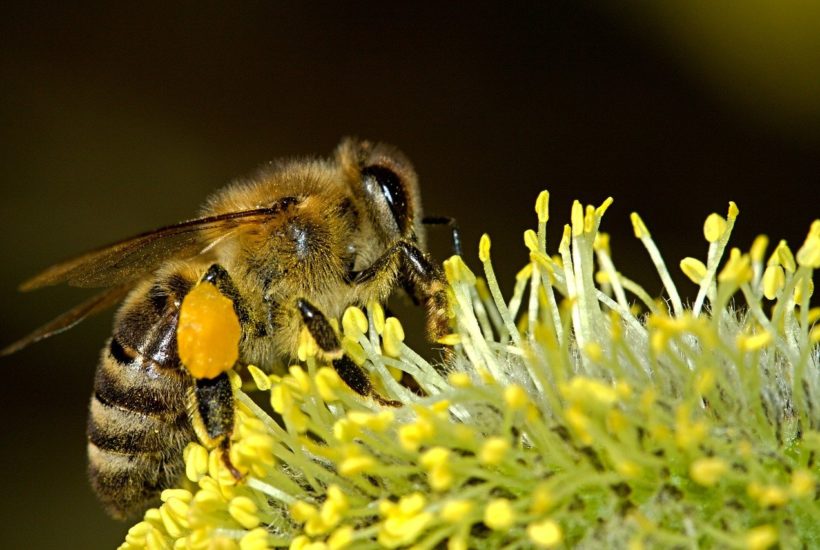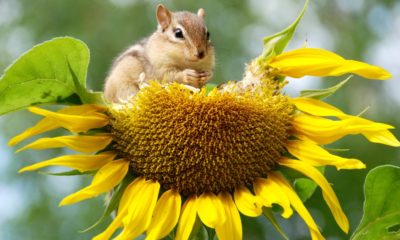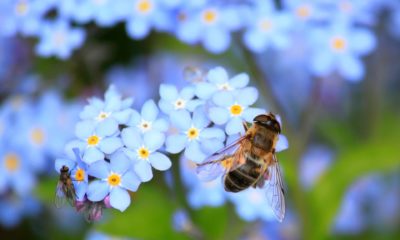Crowdfunding
The project Les Dorloteurs d’Abeilles takes off thanks to crowdfunding
Un Toit Pour les Abeilles has been committed for more than 10 years to defend the interests of bees and preserve biodiversity. Their latest project Les Dorloteurs d’Abeilles has raised more than $145,600 (€124,000 ) in one year on the crowdfunding platform KissKissBank. A success that highlights the craze for this mode of participatory financing of committed citizens.

In thirty years, the number of wild bees in the world has dropped by nearly 80%, a plague essentially due to human activity. Intensive agriculture and the massive use of pesticides are among the main presumed culprits, as experts have regularly pointed out in recent years. It has become urgent to preserve them. That is the reason why Régis, a passionate beekeeper from Charente-Maritime, created in 2010, the company Un Toit Pour Les Abeilles.
Read more on the subject and find the latest financial headlines with our companion app, Born2Invest.
A supportive network for bee sponsorship
The team of Un Toit Pour les Abeilles works for the preservation of the wild bee and the associated biodiversity. A network of solidarity has been set up, offering individuals and companies the opportunity to finance the installation of new hives by sponsoring bees.
In return, the sponsors receive personalized honey pots, regular news about the bees and photos of their hives.
The Bee Groomers project to go further
The Bee Groomers project goes even further. It offers the possibility to become a “super-Dorloteur”, and to receive a specific shelter, a Dorlotoir, ready to install on the balcony or in the garden. This small wooden nesting box allows wild bees to build their nest and lay their eggs. Wild bees represent nearly 20,000 species in the world. Contrary to their cousins, the honey bee, apis mellifera, they do not live in colonies, do not produce honey and do not sting. Their way of life is mainly concentrated on their nest, built in the ground, or with dead wood, hollow stems or cracks in the rocks. Hence the idea of the drawer nest box to accommodate each solitary bee.
“Between February and March, depending on the weather, we send the cocoons to the coddlers. That’s 20,000 cocoons in a year. Between April and June is the peak of wild bee activity, when there are the most active species. A bee lives between 6 and 8 weeks and 10 months as a larva, in a cocoon. Different varieties of bees follow each other in spring, there are 900 different species of wild bees. They do not produce honey. Wild bees are extremely efficient, especially for pollinating fruit,” explains Pauline Jung, project manager at Les Dorloteurs d’Abeilles.
The project recorded a success on KissKissBank
The project Les Dorloteurs d’Abeilles has been a real success on the participative financing platform KissKissBankBank. The project has raised more than $145,600 (€124,000) of funds between January 2020 and March 2021. A success that highlights the craze for this mode of participatory financing of committed citizens. Indeed, in January 2020, the first collection had gathered more than $101,000 (€86,000). A great launch!
“It was a real surprise, we did not expect it at all. Especially since we found ourselves immediately in the first containment, it was more difficult to follow behind. But we managed to make shelters for 1,000 pamperers,” explained Pauline Jung.
In addition, a second fundraiser has just ended on March 12th, it has raised nearly $43,400 (€37,000) to continue developing the project. 500 people are now waiting for their nesting boxes. “To date, since the launch of the project, between participatory campaigns and requests on the website, we are at 3,100 nesters. It is very important for us to have this kind of participatory campaign. It allows us to have the funds in advance to make all the material. We are delighted, especially to see that the subject of bees is of such interest to the general public,” she added.
__
(Featured image by PublicDomainPictures via Pixabay)
DISCLAIMER: This article was written by a third party contributor and does not reflect the opinion of Born2Invest, its management, staff or its associates. Please review our disclaimer for more information.
This article may include forward-looking statements. These forward-looking statements generally are identified by the words “believe,” “project,” “estimate,” “become,” “plan,” “will,” and similar expressions. These forward-looking statements involve known and unknown risks as well as uncertainties, including those discussed in the following cautionary statements and elsewhere in this article and on this site. Although the Company may believe that its expectations are based on reasonable assumptions, the actual results that the Company may achieve may differ materially from any forward-looking statements, which reflect the opinions of the management of the Company only as of the date hereof. Additionally, please make sure to read these important disclosures.
First published in carenews, a third-party contributor translated and adapted the article from the original. In case of discrepancy, the original will prevail.
Although we made reasonable efforts to provide accurate translations, some parts may be incorrect. Born2Invest assumes no responsibility for errors, omissions or ambiguities in the translations provided on this website. Any person or entity relying on translated content does so at their own risk. Born2Invest is not responsible for losses caused by such reliance on the accuracy or reliability of translated information. If you wish to report an error or inaccuracy in the translation, we encourage you to contact us.

-

 Crowdfunding1 week ago
Crowdfunding1 week agoPMG Empowers Italian SMEs with Performance Marketing and Investor-Friendly Crowdfunding
-

 Markets5 days ago
Markets5 days agoMarkets Wobble After Highs as Tariffs Rise and Commodities Soar
-

 Markets2 weeks ago
Markets2 weeks agoThe Big Beautiful Bill: Market Highs Mask Debt and Divergence
-

 Africa2 days ago
Africa2 days agoORA Technologies Secures $7.5M from Local Investors, Boosting Morocco’s Tech Independence



















